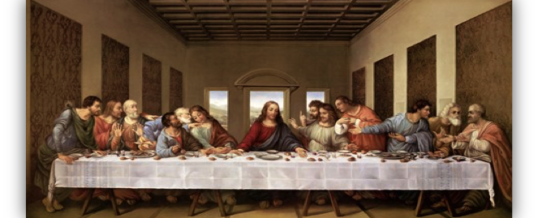
“Sticks and stones may break my bones but names will never hurt me!” These brave words, shouted at other children hurling insults, are simply not true. Words have power to hurt, as cyber bullying shows; and yet also have power to heal, as shouting back at bullies mitigates the pain. In the new catechism, St. Augustine is quoted as saying that the sacraments receive their power by combining words with material elements (1228). At the time of my First Holy Communion 72 years ago the words were Latin. We the people in the congregation watched the back of the priest as he said Latin words facing the wall. Those who could read followed along with the English translation in their Missals.
But are the words of consecration nouns or verbs? “Take and eat this” are verbs. “Hoc est enim corpus meum” emphasize the noun “corpus”. We know that Jesus honoured the Jewish Feast of the Passover with a ritual Sabbath meal. We know of His deep knowledge of Scripture. He chose the sign of His new covenant at that ritual feast and gave all of us His followers a way to be with Him – to participate in His presence- by eating and drinking. What else do we do at a feast?
“Do this in memory of Me.” Is it the verb or the noun that powers Christian life? Jesus knew that Adam and Eve “ate” the fruit of knowledge. He offered us a way to engage with Him and to celebrate in joyful ceremony our participation in the way of life He offers. “Wherever two or three of you are gathered together in My name, there am I in the midst of you.” Holy Communion is not a solo flight. It is a “Communion of Saints” created by the Holy Spirit out of us sinners who have been comforted by the powerful words of Christ. The Communion hymn paraphrases the Roman Occupation soldier who interceded for his servant by saying “…but speak the words of comfort my spirit healed shall be.”
Agnes Beirne
JUN
2021

About the Author: